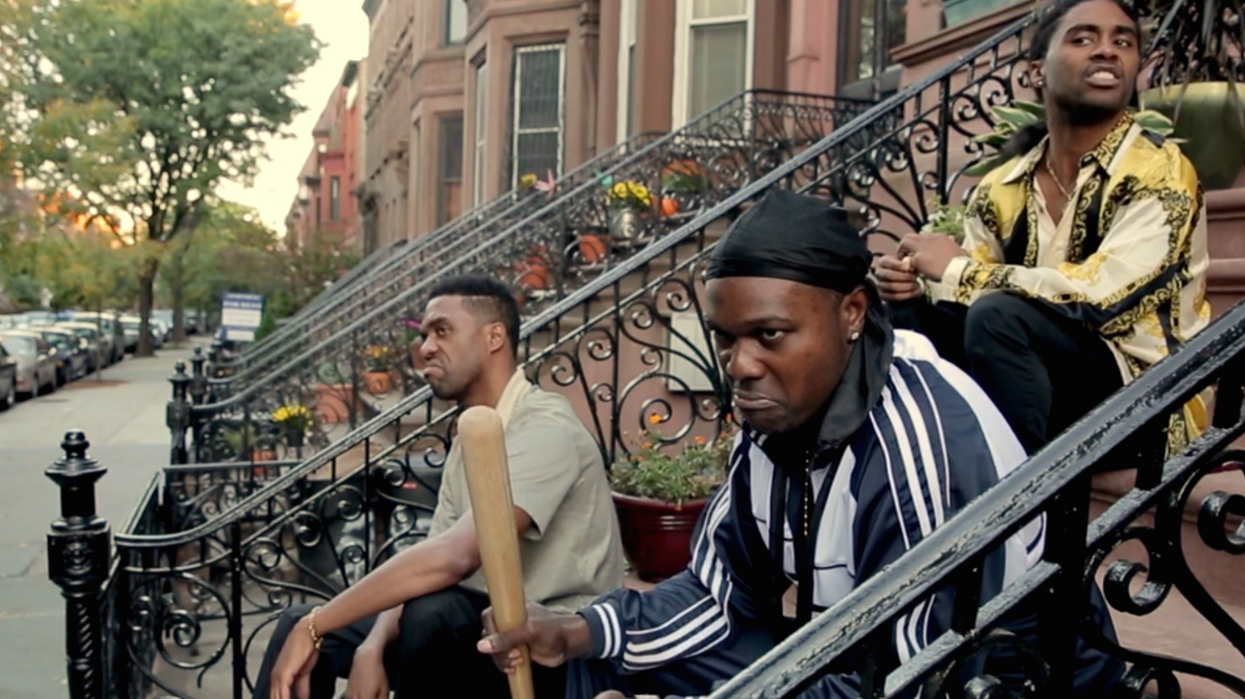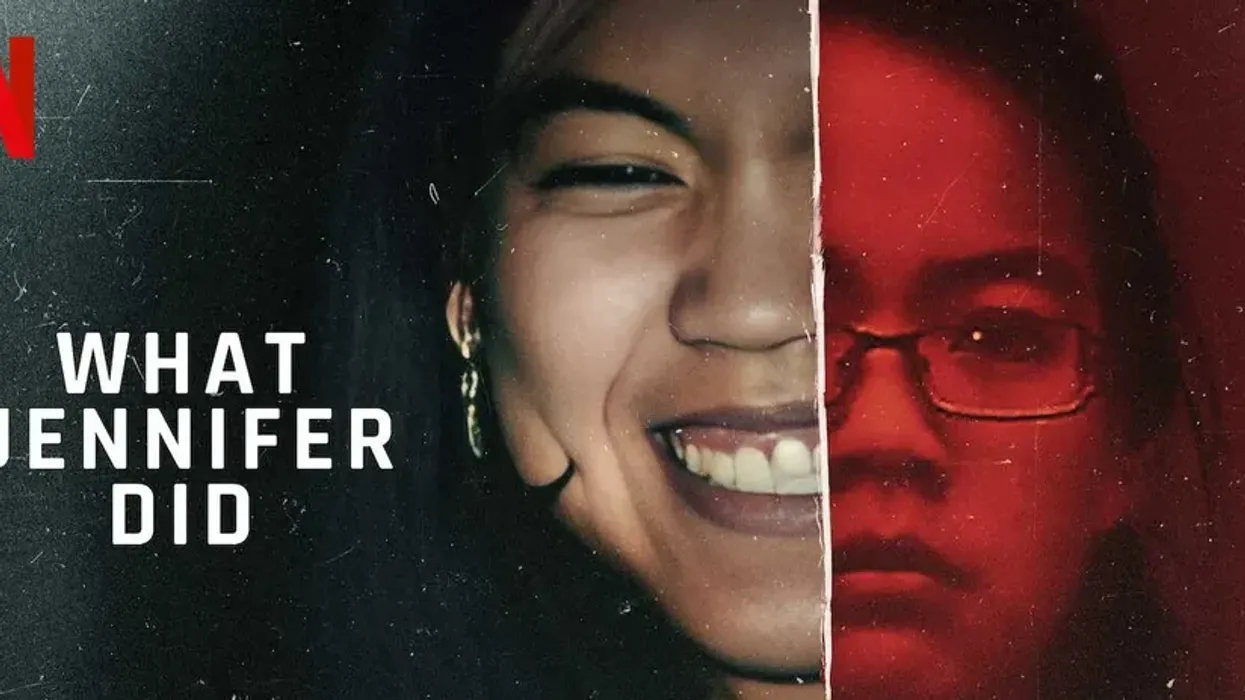Shaka King's Satire 'Mulignans' Turns the Tables on Mob Movie Racism

"People who make movies don't have a choice," said writer/director Shaka King (Newlyweeds) at Sundance this year. With a well-received, darkly hilarious Sundance feature already under his belt, King proved his point by proceeding to make a no budget, shot-in-one-day short because, in his words, "I don't like doing anything else." King writes, directs, and stars in the five-minute "Mulignans," which he and his longtime friends planned on making and releasing themselves — but then they got the call that they were selected for the prestigious Sundance Film Festival, where it premiered earlier this year.
"Mulignans" asks important questions that offfset its breezy pacing and humorous tone: if viewers tolerate offensive language and perspectives from white Italians on film, how do they feel when those same attitudes and epithets come from those who are usually the target of the vernacular? And is the gentrification of Brooklyn and the accompanying change in racial makeup of many neighborhoods any different from the kinds of changes decried by mobsters throughout film history?
After a prestigious festival bow, King released "Mulignans" online for free, as was his original intent. Warning: NSFW and, by design, offensive language. Our Q&A follows.
No Film School: You guys have been riffing on these characters for a while, right? When did it start?
Shaka King: My cousin Jerard (with the du-rag) and I have been riffing on these characters since 7th grade or so. I went to school in a predominantly Italian-American neighborhood from 5th grade through High School and encountered a few guys like these. Around that time I also discovered Scorcese flicks. Who knows why, but one day I started talking to my cousin on the phone in this accent and he cracked up and came back with his own variation. Years later Cavalier (with the ponytail) started attending my High School and he can mimic any man, alien or animal…so a sort of troupe was born.
NFS: How did you feel about mob movies featuring and lionizing overtly racist characters when you first started impersonating those accents and mannerisms, and did that feeling change as you got older?
SK: We found those characters funny. Still do. In the beginning when playing these guys we actually made racist jokes about ourselves. I think even as kids we recognized the absurdity of racism and race as a construct. We were listening to Richard Pryor albums and watching and rewinding Eddie Murphy singing “Kill the White People” on SNL, so we had references too. Which isn’t to say that we didn’t recognize the cruelty of racism as well. Particularly in High School, having a socially segregated experience for many years and experiencing racial tension on the daily…not always in the sense of someone calling you a nigger, though that happened as well. But just feeling like an outsider. Talking like these guys was a way to mock them.
NFS: How did the idea for the short evolve from what you had in mind originally to what you ended up with?
SK: Kristan Sprague, my long time editor and friend from college, came up with the concept. But initially we structured it around this climactic hate crime where we bludgeoned a White jogger to death while calling him nigger. It was like an SNL sketch written by Gaspar Noe. And it loomed so heavy over the piece that we couldn’t move forward. Because we didn’t want to make something hateful. And yet at the same time we didn’t see how the film worked as a fully realized satire without that conclusion. Interestingly enough the bobble head ending we came up with was 100% improvised and it’s probably my favorite moment in the film.

SK: Worldstar. We still want it on Worldstar.
NFS: What was the shoot like as far as equipment, crew, length?
SK: It was a one day shoot, no lights, shot on the 7D. Daniel Patterson DP’d and worked with three operators so we could improv non-stop and cut seamlessly.
NFS: What are you working on now?
SK: I’m working on a two-part feature length satire of celeb-reality television called Liquid Courage. It’s also a satire of magical Negro movies. I’m also developing a TV idea with some musician friends of mine.
Thanks, Shaka! And in case you missed it, here's (part of) the roundtable discussion Shaka participated in from Sundance 2015:







![Ethos, Pathos, Logos: 20 Effective Ways to Advertise [Infographic]](https://nofilmschool.com/media-library/ethos-pathos-logos-20-effective-ways-to-advertise-infographic.jpg?id=34064614&width=600&height=600&quality=90&coordinates=560%2C0%2C0%2C0)



